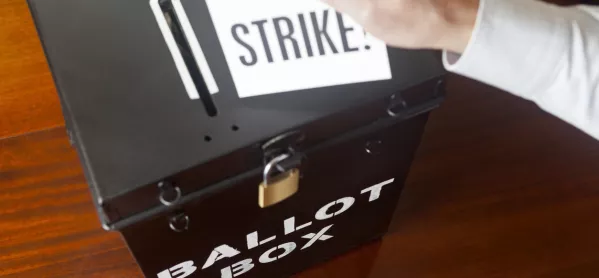Recently, NEU teaching union members at the independent Burgess Hill School for Girls in Sussex were ready to take industrial action in defence of their pensions.
On the eve of the strike, the action was suspended, thanks to a potential breakthrough in discussions with governors.
When teachers feel that they have no alternative but to withdraw their labour, it is a last resort. When staff working in the independent sector do so, you really know that something is up.
And this is not an isolated incident.
Prepared to take action
In the current Teachers’ Pensions Scheme (TPS) dispute, where employers are considering withdrawal from the scheme altogether, the NEU has authorised industrial action in a dozen or so independent schools. Well-publicised cases include the strike action taken by NEU members at St Edward’s School, Oxford.
And, in many other independent schools, NEU members have taken other formal steps, such as initiating and conducting indicative ballots for industrial action.
So far, there have been a further two dozen or so indicative ballots conducted by the NEU across the independent sector, with members overwhelmingly prepared to take strike action.
Always, the desire of NEU members is to reach an amicable agreement, but we will take action as necessary.
Wholly unnecessary decision
The situation has arisen because of a significant increase in employer contribution to the TPS from September 2019.
This itself results from a wholly unnecessary decision by the government to change the way in which pension contributions are calculated. State schools are receiving an additional grant to cover the cost, but independent schools are having to pay the extra cost themselves.
Leaving the TPS would mean a significant reduction to a teacher’s remuneration. Put simply, there is no alternative pension scheme that offers anything like comparable contributions and benefits.
And, for many NEU members, leaving the TPS is a deal-breaker. It is a fundamental part of a teacher’s remuneration, and for many a contractual term. It is not a decision to be unilaterally taken by an employer.
Forcing the employer’s hand
As the largest union in the sector, with over 30,000 members, we are leading the way on this issue.
NEU members across the country and in all types of schools are successfully persuading their employers to remain in the TPS. You can read about one such success story at an HMC school in South London on our website.
In some cases, it has taken the threat of conducting indicative ballots to force the employer’s hand.
In others, it has gone to the wire: only when NEU members have been through the full industrial ballot process and are ready to act does the employer finally abandon its plans to leave the TPS.
So how significant is the problem? In response to a NEU Freedom of Information request, the Department for Education stated that, as of 31 March 2019, there were 1,171 independent schools in England and Wales in the Teachers’ Pension Scheme.
The DfE confirmed that, as of 19 November 2019, 97 independent schools have applied to leave the scheme. We believe the true figure to be higher.
Far-reaching ramifications
So, while this currently amounts to roughly 10 per cent of independent schools in membership of the TPS, the ramifications for our members in the sector - as well as for the wider profession - are detrimental and far-reaching.
The implications of leaving the TPS would be serious for any school. Among other things, the current recruitment and retention crisis will not be helped by further undermining the attractiveness of the profession in this way.
Provision of a good pension is a fundamental part of a teacher’s terms and conditions. It is something that the NEU believes should be enjoyed by all teachers, wherever they work. And it is something that our members are prepared to fight for.
Back in 2011, when the coalition government sought to boot all independent sector teachers out of the TPS altogether, it was the joint collective action of ATL and NUT independent-sector members, working together, that successfully defeated government plans.
Together, as the NEU, we truly are a force to be reckoned with - and will continue to be so.
Mary Bousted is joint general secretary of the NEU





